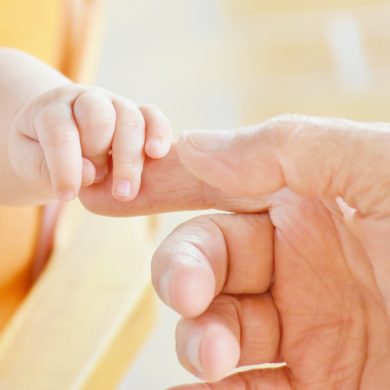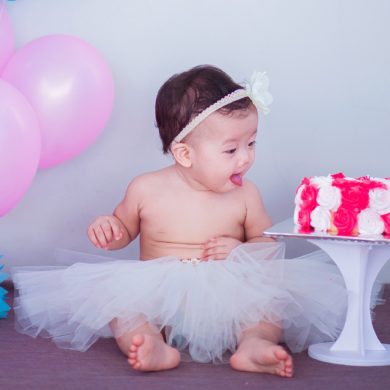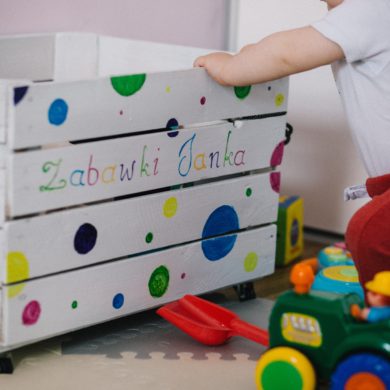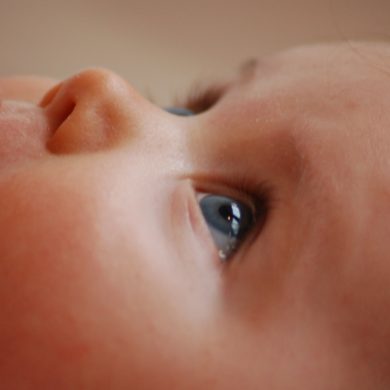The philosophy of Wonderland Preschool’s Infant and Baby Care Program beliefs that babies need consistent love, attention, praise, concern, and care by caregivers who are well prepared and knowledgeable in sound principles of child development. With a commitment to the child’s physical, emotional, social, and intellectual growth. Learning is a developmental process that occurs naturally and progressively within a stimulating and nurturing environment through exploration, manipulation, and better understanding the world through their efforts.


Development includes the child’s experience, expression, and management of emotions and the ability to establish positive and rewarding relationships with others.
- 0 – 1 Month: cries to express emotions; bonding begins
- 4 – 10 Weeks: social smiles
- 2 Months: begins social games
- 3 Months: distinguishes familiar faces*, turns head toward human voice, smiles in response to a smile, kicks, smiles, waves in response, cries when left alone, and recognizes parent
- 4 Months: genuine laugh, smiles when spoken to, loves attention
- 5 Months to 1 year: stranger anxiety*
- 6 Months: distinguishes between voices, smiles, babbles at strangers, develops attachment, begins to play imitation games, plays peek-a-boo, sensitive to parental moods
- 8 Months: laughs out loud
- 9 Months: screams to get own way, play is activity only for present moment, fears unfamiliar: people, places, things*, beginning sense of separate self.*


Development includes a wide range of specific competencies that preschool children will need support to learn including listening and speaking, reading, writing.
- 0 – 1 month: turns head in response to voices, cries to express needs
- 6 – 8 weeks: coos Gestures to communicate, pushes objects away, squirms, reaches out to people,* pouts, smacks lips, shrieks, points
- 2 months: voluntary vocal sounds
- 3 months: babbles
- 6 – 12 months: imitation sound games, responds to variety of sounds*, makes vowel sounds Acquires receptive language*, cries to communicate
- 12 months: first words


Development includes balance, loco motor skills, manipulative skills, body awareness, spatial awareness, directional awareness, and active participation.
- By 1 year: grows 10 to 12 inches, triples birth weight. lengthens by 40%, doubles brain size, grows, full head of hair,
Bounces in crib, Uses whole-body motions - 4 months: sees, grasps objects
- 5 months: examines fingers, sits when propped
- 6 months: rolls over, discovers feet, teething begins
- 7 months: crawls
- 8 months: sits up unaided, pulls to standing position, pincer grasp established
- 9 months: creeps
- 10 months: feeds self with spoon
- 11 months: stands alone, cruises
- 12 months: first steps
Late infancy: can move hands in rotation to turn knobs, newborn motor activity is mostly reflexes.


Development focusing on child’s ability to process information, conceptual resources, perceptual skill, language learning, and other aspects of brain development.
- 0-1 month: responds to mother’s voice: senses function, especially pain, touch*
- 10 weeks: memory is evident*
- 4 months: smiles of recognition
- 7-10 months: solves simple problems (knocks over box to get toy)
- 8 months: begins to believe in permanence of objects; follows a simple instruction
- 8-12 months: intentionally in acts
- 11 months: begins trial-error experimentation
- 12 months: plays drop/retrieve games, pat-a-cake, explores with hands and fingers, smiles, vocalizes at image in mirror*
*Key cultural awareness of identity characteristics
